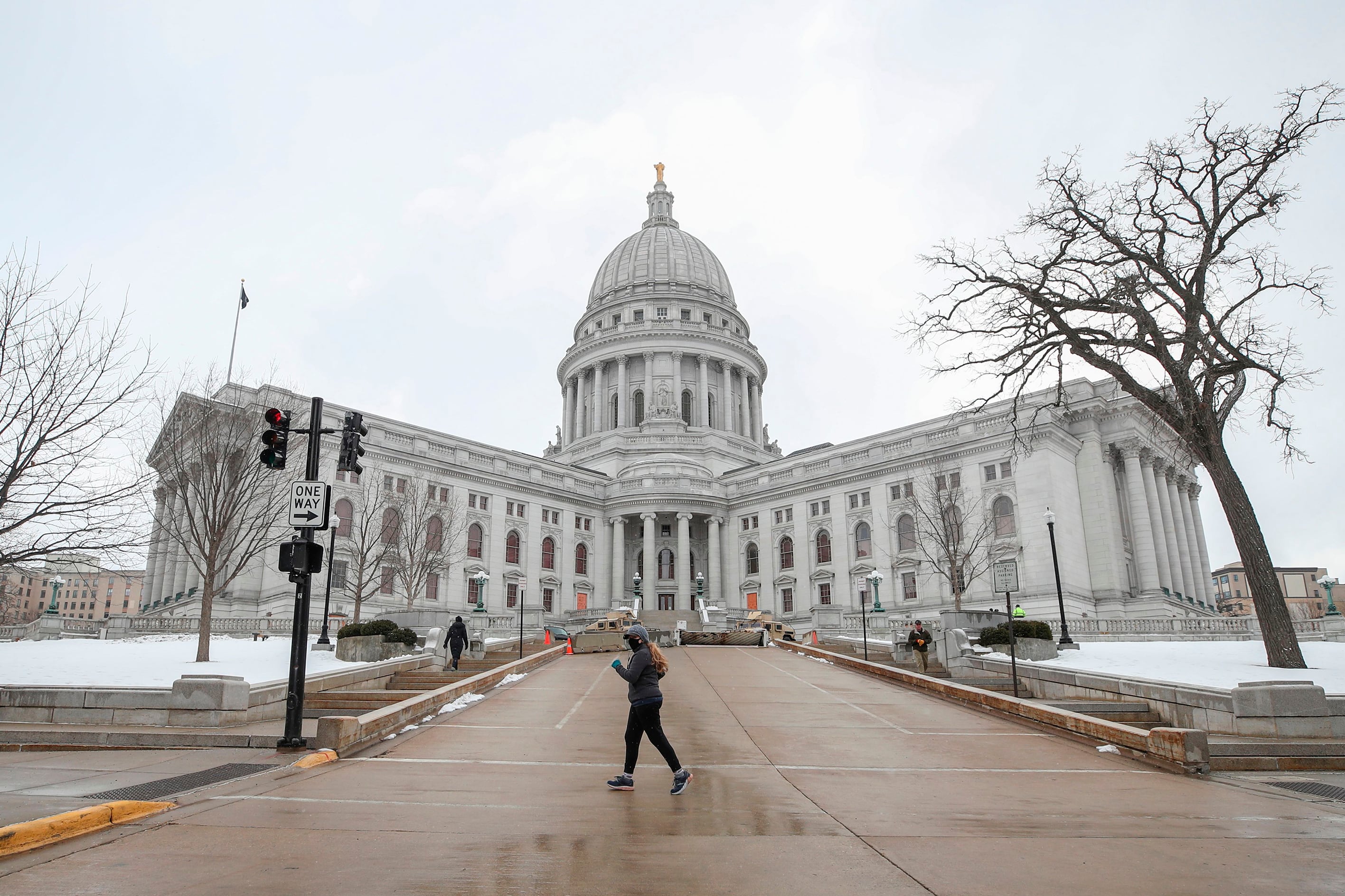Votebeat is a nonprofit news organization reporting on voting access and election administration across the U.S. Sign up for Votebeat Wisconsin’s free newsletter here.
Update, March 30, 2025: Attorney General Josh Kaul, a Democrat, on Sunday asked the Wisconsin Supreme Court to stop Elon Musk’s $1 million payments to two voters at a Green Bay event Sunday evening, saying they were illegal incentives “to induce people to vote.” The court rejected Kaul’s petition Sunday.
Update, March 29, 2025: On Saturday, an appeals court rejected Wisconsin Attorney General Josh Kaul’s request to block tech CEO Elon Musk from “promoting a million-dollar giveaway to attendees of a planned event on Sunday” and from “making any payments to Wisconsin electors to vote.”
Update, March 29, 2025: Wisconsin Attorney General Josh Kaul said he is asking a state appeals court to immediately issue an emergency order prohibiting Elon Musk and America PAC “from further promoting a million-dollar giveaway to attendees of a planned event on Sunday” and “making any payments to Wisconsin electors to vote.” A lower-court judge refused to hold a hearing on Kaul’s request before the planned event Sunday, Kaul said in the filing, which was publicly released by his office Friday night.
Wisconsin Democrats are taking Elon Musk to court — and taking to the airwaves — after the tech billionaire posted, and then quickly deleted, a promotion to give away $1 million each to two randomly selected people who voted in the Wisconsin Supreme Court election. They allege the post violated the state’s election bribery law.
Musk said that at a Sunday night event only for people who have voted in the Wisconsin Supreme Court election, he would “personally hand over two checks for a million dollars each in appreciation for you taking the time to vote.”
Musk, the top spender in the race and a supporter of conservative candidate Brad Schimel, said in a second post that he would instead pay $1 million each to two registered voters who signed an online petition that his political action committee, America PAC, organized to oppose “activist” judges.
But the damage was done. Attorney General Josh Kaul, a Democrat, filed a lawsuit in Dane County Circuit Court to stop the planned giveaway. At the same time, Democratic Gov. Tony Evers criticized Musk on social media, declaring that Wisconsinites’ votes “are not for sale.”
Kaul’s lawsuit alleges that Musk’s $1 million offer amounted to a “blatant attempt” to break state election bribery laws. He’s asking the court to bar Musk or his PAC from offering or providing any financial incentives tied to voting in Wisconsin.
The case was initially randomly assigned to Dane County Circuit Court Judge Susan Crawford — ironically, the liberal Wisconsin Supreme Court candidate whom Musk opposes. Crawford quickly recused herself, and the case was reassigned to Columbia County Judge W. Andrew Voigt.
From the start of the campaign, Democrats have tried to focus voters’ attention on Musk, whose support for President Donald Trump and aggressive moves as a presidential aide to cut federal jobs and funding have drawn Democrats’ ire. Republicans, meanwhile, took quick notice of Crawford’s initial assignment to the case, accusing Democrats of using the judiciary to target their political opponents.
This isn’t Musk’s first brush with legal controversy over voting-related giveaways. Ahead of the 2024 presidential election, Musk launched a petition in support of the U.S. Constitution, awarding one $1 million check a day to hand-selected people who signed it. Philadelphia’s district attorney sued him over it, but a court allowed the petition and giveaway to continue.
Ahead of the $1 million giveaway in Wisconsin, Musk’s PAC has been circulating a petition with an offer of $100 to registered voters who sign to reject “the actions of activist judges who impose their own views and [demand] a judiciary that respects its role — interpreting, not legislating.”
The petition doesn’t explicitly mention the Wisconsin Supreme Court, but it uses talking points commonly featured in conservative judicial campaigns — that liberal justices seek to legislate from the bench while conservatives just interpret the law.
Alexander Shur is a reporter for Votebeat based in Wisconsin. Contact Alexander at ashur@votebeat.org.





